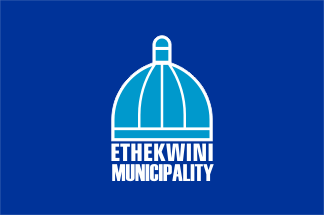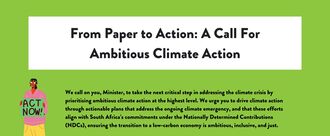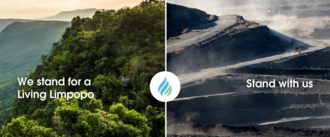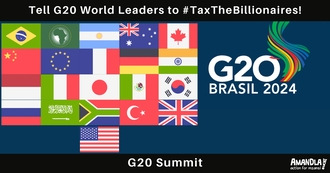- Featured
- Clean air
- Climate justice
- Consumer Rights
- Corporate Accountability
- Data access
- Early Childhood Development
- Economic fairness
- Education
- Electoral fairness
- Environmental justice
- Food justice
- Gender based violence
- Grants/social assistance
- Health
- Housing and infrastructure
- Industry interference
- Land Justice
- LGBTQIA+ rights
- Media/ information access
- Public transport
- Racism
- Reparations
- Safety
- Sanitation
- Service Delivery
- Sexual and Reproductive Rights
- Social justice
- Unemployment
- Womxn's rights/ gender equality
- Workers' rights
- More
-
Tell the KZN Provincial Disaster Management Centre, To Stop Turning Flood Zones Into Death ZonesThe KwaZulu-Natal Provincial Disaster Management Centre (PDMC) is failing communities in high-risk flood areas. Since April 2022, floods have been intensifying with over 450 lives lost [1] and thousands of homes destroyed [2]. This all could have been avoided. PDMC, which is housed under Cooperative Governance and Traditional Affairs (CoGTA), is supposed to, under the Disaster Management Act of 2002 [3], establish frameworks for disaster management and relief to ensure the prevention of the loss of life. The current framework is very weak and does not clearly outline what residents should do in the event of a flood; it also fails to address the assembly points in high flood zones and the communication strategy the municipality plans to use to to alert communities about a possible flood. The R861 million that was allocated to the eThekwini Municipality for disaster relief was returned to the national fiscus, citing poor project management and non-reporting as reasons [4]. Funding for projects, including one to implement live video and surveillance cameras to enable real-time monitoring and reporting of disaster-related incidents, have been cut [5], leaving residents in eThekwini Municipality in high flood zones at risk. We acknowledge that CoGTA in KZN has signed MOUs with NGOs and the private sector [6] toward disaster relief however, It does not specify evacuation or housing plans. We are looking for a more proactive approach. It is clear, should there be a flood tomorrow, PDMC in KwaZulu-Natal would not be ready, and hundreds of lives would be lost and severely disrupted. Areas such as eMlazi, eManzimtoti, Queensburg, Malvern, and Chatsworth were some of the badly affected areas in the 2022 floods. We want a report within 30 days that answers the above questions. Climate change is here to stay, and we will continue to feel its effects more intensely. That is why governments and municipalities need to be proactive in dealing with the effects of flooding and prevent unnecessary loss of lives. Sources: [1] KZN Floods Emergency Response – Médecins Sans Frontières (MSF South Africa), accessed 26 August 2025. URL: https://www.msf.org.za/kzn-floods-emergency-response [2] Des Erasmus, 2022, Ramaphosa vows comprehensive KZN recovery effort, zero corruption tolerance. [Online] Daily Maverick. Available at: Ramaphosa vows comprehensive KZN recovery effort, zero corruption tolerance Ramaphosa promises a hard line on KZN emergency disaster relief corruption [Accessed 26 August 2025]. [3] Disaster Management Act 57 of 2002. (South Africa), Disaster Management Act [online]. Available at: South African Government website (gov.za). Available from: https://www.gov.za/documents/disaster-management-act [Accessed 27 August 2025]. [4] Dawood, Zainul. 2025. “Budget cuts delay critical disaster management initiatives in KwaZulu‑Natal.” IOL. https://iol.co.za/news/south-africa/kwazulu-natal/2025-08-05-budget-cuts-delay-critical-disaster-management-initiatives-in-kwazulu-natal/ IOL [5]Dawood, Zainul. 2025. “Budget cuts delay critical disaster management initiatives in KwaZulu‑Natal.” IOL. https://iol.co.za/news/south-africa/kwazulu-natal/2025-08-05-budget-cuts-delay-critical-disaster-management-initiatives-in-kwazulu-natal/ IOL [6]2025. “KZN MEC Buthelezi seals landmark disaster risk reduction partnership with private sector & NGOs.” KZN COGTA. March 4, 2025. https://www.kzncogta.gov.za/archives/874660 of 100 SignaturesCreated by Thabile Mdhluli
-
From Paper to Action: A Call For Ambitious Climate ActionThe Intergovernmental Panel on Climate Change (IPCC) has issued a stark warning: global warming is on track to exceed 1.5°C above pre-industrial levels, a threshold that will lead to catastrophic impacts such as rising sea levels, more frequent droughts, and extreme weather events. South Africa has already been significantly impacted by climate change, with droughts, heatwaves, and severe storms becoming more frequent and intense, claiming lives and destroying infrastructure. As we enter the second half of what scientists have dubbed the critical decade, the worst of the climate crisis is yet to come. Without ambitious, actionable plans, South Africa risks further deepening existing social and economic inequalities.As the ministry responsible for climate policy, particularly with the submission of the Nationally Determined Contributions, your leadership is crucial in driving immediate and transformative action to safeguard South Africa’s future. We are calling on you, Minister, to rise to the moment - to demonstrate bold leadership and take decisive action. It is your responsibility to do what it takes to keep the Paris Agreement goal of 1.5°C alive through the following actions: • Submit an ambitious NDC • Alignment of NDC and Integrated Resource Plan (IRP) • Clear and Practical Plans for Phasing Out Fossil Fuels • Stronger Emission Reduction Targets • Fair and Equitable Climate Finance • Social Safety Nets for Climate-Displaced Communities • Investment in Early Warning Systems81 of 100 SignaturesCreated by Courtney Morgan
-
STOP THE ILLEGAL STRIP-MINING OF THE VHEMBE FOR COALThe unlawful exploitation of our natural heritage by foreign interests for short-term profit undermines our constitutional rights and jeopardises future generations. Furthermore, this project is built on the promise to deliver jobs for the community in the area, but we know that it is a lie. The economic fault lines upon which Makhado’s great arc and blast furnaces will be built run deep. A terrible price will be paid for any jobs created, as those jobs will not last. It is an environmental and economic disaster waiting to happen. -------------------------------------------------------------------------------------------End of open letter Your signature can help us stop the creation of a new sacrifice zone for coal and steel in Limpopo. Sign the open letter now! To further understand the gravity of the issue Carte Blanche has released this telling exposé. Watch here: https://youtu.be/CW_CanP31Mk148 of 200 SignaturesCreated by Living Limpopo
-
Tell the G20 World Leaders to #TaxTheBillionaires!The climate crisis is not in the future; it is already here, hitting the most vulnerable: poor countries, forest peoples, river communities, slum dwellers, and rural populations who suffer from floods, droughts, and extreme temperatures. These people, who contributed the least to the problem, are paying the highest price. While the planet collapses, the richest continue to accumulate their fortunes, shielded in their bubbles. This proposal is based on the studies of Esther Duflo and Gabriel Zucman, economists whom the Brazilian government has taken as a reference to move forward in the G20 debate. It is absurd that this hasn’t advanced yet. A 2% wealth tax on 3,000 billionaires could fund much of the climate adaptation for over half of the world's population! The urgency is real, and the G20 will be the perfect stage for this change, with the world's most powerful leaders gathered. But we have little time because negotiations for the final meeting text began on 22 October 2024! That's why we need to be many voices. Together, let’s pressure the 20 global leaders and demand that the climate crisis be addressed in a fair and just way. What is the G20? The G20, also known as The Group Of Twenty, is the premier forum for international economic cooperation comprised of 19 countries ((Argentina, Australia, Brazil, Canada, China, France, Germany, India, Indonesia, Italy, Japan, Republic of Korea, Mexico, Russia, Saudi Arabia, South Africa, Türkiye, United Kingdom and United States) and two regional bodies: the European Union and the African Union (as of 2023). It plays an important role in shaping and strengthening global architecture and governance on all major international economic issues [1]. Currently, Brazil holds the G20 Presidency. Previously, India held the Presidency from 1 December 2022 to 30 November 2023. On 1 December 2024, South Africa will officially take over the G20 Presidency until November 2025, making it the last country in the Global South to hold the presidency. [1] https://www.g20.in/en/about-g20/about-g20.html#:~:text=The%20Group%20of%20Twenty%20.130 of 200 Signatures
.png)

.jpg)
.png)
